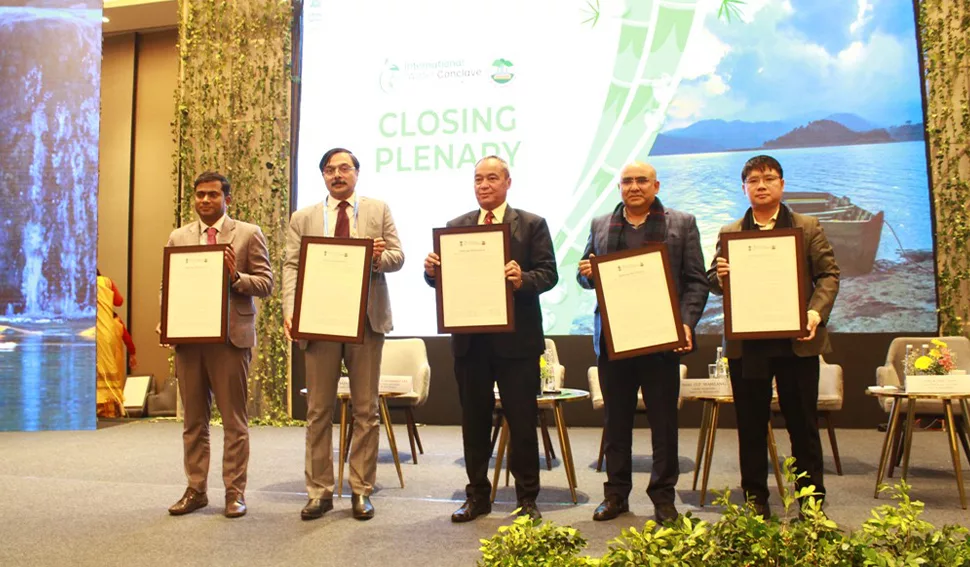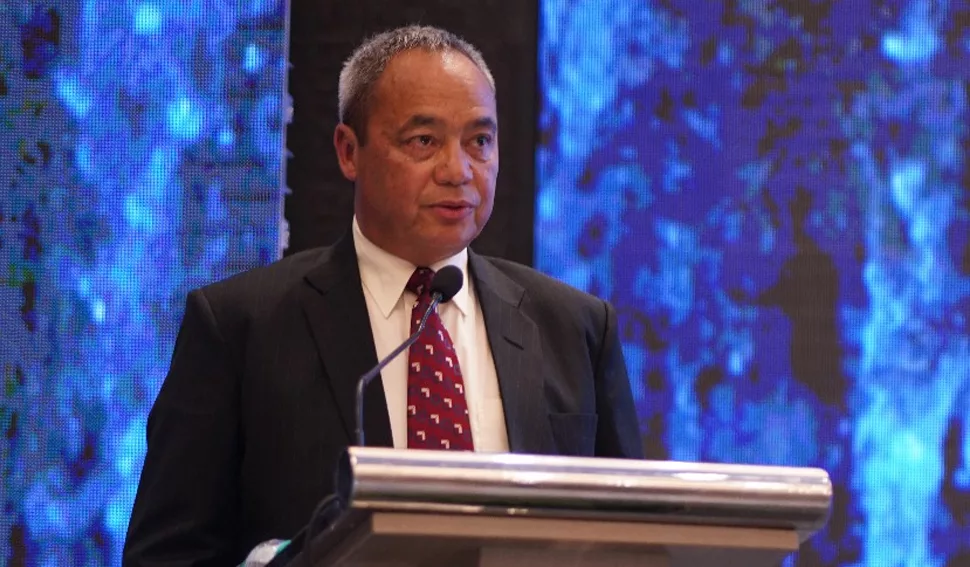Sufficient funds available for source regeneration: Chief Secretary of Meghalaya

Chief Secretary Donald P. Wahlang maintained that the state Forest department has sufficient funds for source management and dismissed claims of fund constraints for the purpose.
Speaking of source management on the concluding day of the International Water Conclave on Saturday, he said, “We need to rejuvenate, resuscitate the various sources. People are saying that the government doesn’t have money, it’s not true. In fact, for source regeneration, we have a lot of money. There are funds from a MMMRF (Meghalaya Minor Mineral Reclamation Fund), there are funds from has MEPRF (Meghalaya Environmental Protection and Restoration Fund), there is CAMPA (Compensatory Afforestation Fund Management and Planning Authority). Forest department has a lot of money which can be utilized in all states in fact, for all North Eastern states not only for Meghalaya.”
The Chief Secretary expressed his concern that though Meghalaya is home to the cleanest village in Asia (Mawlynnong), yet has two of the most polluted rivers in town (Umshyrpi and Wahumkhrah).
He added that the Cabinet meeting held on Friday made key decisions to ensure that the rivers are rejuvenated.
It may be mentioned that on the inauguration of the International Water Conclave on Friday, the Chief Minister Conrad Sangma also spoke about the need to rejuvenate the two rivers where he expressed his commitment to finding sustainable solutions in collaboration with the Ministry of Jal Shakti.
Stressing on the role of education department, Wahlang said that there is a tendency to forget about water conservation and waste management as far as the syllabus is concerned.
He said, “This is very important because it is through education department that students should be taught about this where should the waste water go?”
The highlight of the event was the reading of the Shillong Declaration by Dr. Shakil P. Ahammed, IAS, Additional Chief Secretary, emphasizing the imperative need for embracing state-of-the-art technology in sanitation, waste, and wastewater treatment, alongside promoting water recycling initiatives to bolster water availability. The Declaration also stressed the importance of participatory planning, implementation, and oversight in ensuring safe, sustainable, and resilient water management and governance systems, crucial for meeting diverse water needs across Hill regions.

Over the course of the conclave, participants engaged in extensive deliberations covering a spectrum of topics including water and infrastructure development, climate resilience, disaster management, spring shed development, and best practices in water conservation.
The discussions culminated in identifying actionable pathways for addressing water challenges in Hill regions.
The event marked a significant step forward in fostering collaborative efforts towards addressing water-related issues, ensuring the holistic development of Hill regions, and promoting sustainable water management practices. The insights gained from the conclave are poised to guide future actions and policies aimed at safeguarding water resources and enhancing the well-being of communities in these regions.


Leave a Reply